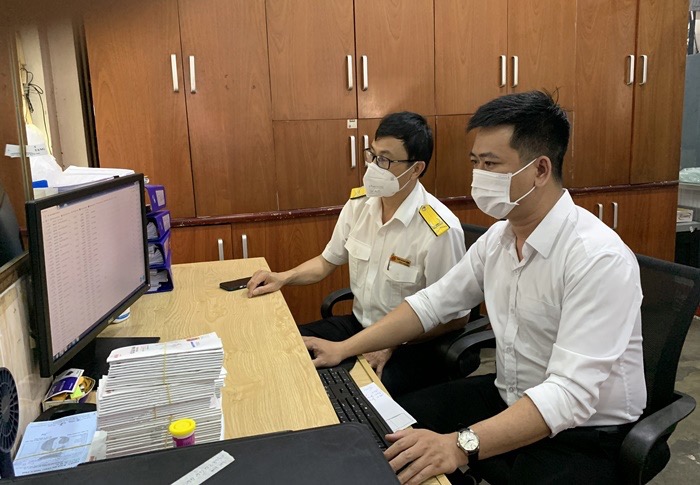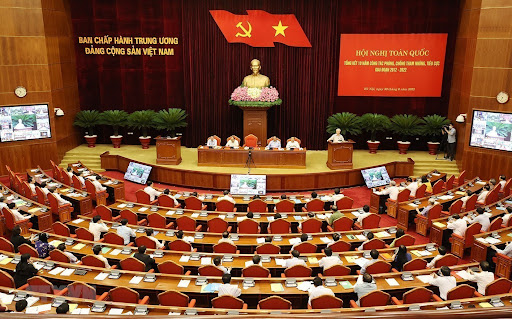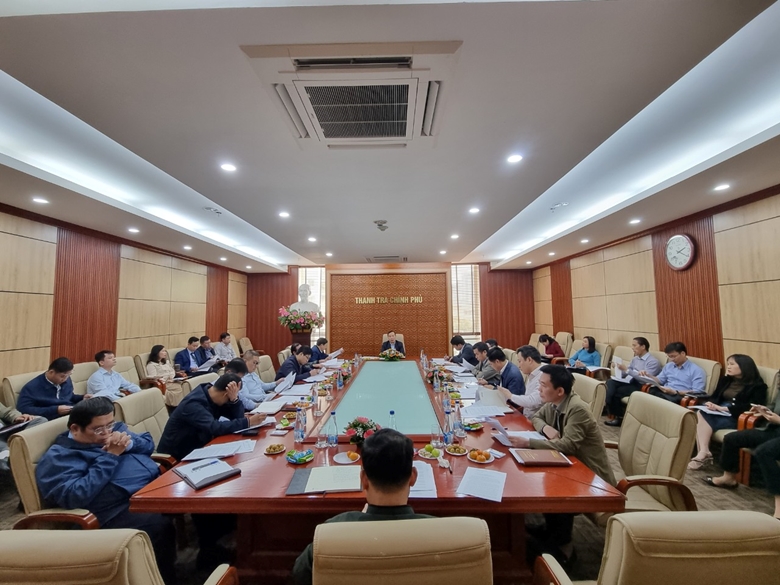TPP - Chapter 26 - Transparency and Anti-Corruption
Chapter 26 of the TPP Agreement stipulates measures, administrative procedures, review, and appeals regarding transparency and anti-corruption.
CHAPTER 26
TRANSPARENCY AND ANTI-CORRUPTION
Section A: Definitions
Article 26.1: Definitions
In this Chapter:
act or refrain from acting in relation to the performance of official duties includes the use of official’s position, whether or not within the scope of authority of the agency;
an administrative ruling of general application means an administrative decision or interpretation applicable to all persons and factual situations generally within the scope of such decision or interpretation and establishing a norm of conduct, but does not include:
(a) a decision or ruling in an administrative or quasi-judicial proceeding that applies to a particular person, a specific good, or service of another Party in a specific case; or
(b) a ruling to adjudicate a particular act or practice;
foreign official means any person holding a legislative, executive, administrative, or judicial office of a foreign country at any level of government, appointed or elected, permanent or temporary, paid or unpaid, irrespective of the person's seniority; and any person performing a function for a foreign country, at any level of government, including for an agency or public enterprise;
official of a public international organization means an international official or any person authorized by such an organization to act on behalf of that organization in some capacity; and
official means:
(a) a person holding a legislative, executive, administrative, or judicial office of a foreign country at any level of government, appointed or elected, permanent or temporary, paid or unpaid, irrespective of the person's seniority;
(b) a person performing a public function for a Party, including for an agency or enterprise, or providing a public service, as determined under the law of that Party and as applied in a proper scope under the law of that Party; or
(c) a person defined as an official under the law of a Party.
Section B: Transparency
Article 26.2: Publication
-
Each Party shall ensure that its laws, regulations, procedures, and administrative rulings of general application respecting any matter covered by this Agreement are promptly published or otherwise made available to enable interested persons and the other Parties to become acquainted with them.
-
To the extent possible, each Party shall:
(a) publish in advance any measure referred to in paragraph 1 that it proposes to adopt; and
(b) provide interested persons and the other Parties a reasonable opportunity to comment on such proposed measures.
-
To the extent possible, when introducing or changing laws, regulations, and procedures referred to in paragraph 1, each Party shall provide a reasonable period between the date of publication of the proposed or adopted law, regulation, or procedure, and the date it goes into effect.
-
With respect to a proposed measure of general application of a central level of government of a Party related to matters covered by this Agreement that may affect trade and investment between the Parties and is published pursuant to paragraph 2(a), each Party shall:
(a) publish the proposed measure in an official journal or on a single official website;
(b) endeavor to publish the proposed measure:
(i) not less than 60 days prior to the date of the comment submission deadline; or
(ii) at a time when comments can be submitted with sufficient time to evaluate and present views on the proposed measure;
(c) to the extent practicable, include explanations of the purpose and rationale for the proposed measure; and
(d) consider comments received during the comment period and is encouraged to explain any significant modifications made to the proposed measure, preferably on an official website or in a published journal.
- With respect to a final measure of general application adopted by the central level of government regarding matters covered by this Agreement, each Party shall:
(a) promptly publish the measure in an official journal or on an official website; and
(b) if appropriate, include in the publication an explanation of the purpose and rationale of the measure.
Article 26.3: Administrative Procedures
In order to administer in a consistent, impartial, and reasonable manner all measures of general application affecting any matter covered by this Agreement, each Party shall ensure in its administrative procedures applying measures referred to in Article 26.2.1 (Publication) to a person, good, or service of another Party in specific cases that:
(a) whenever possible, a person of a Party directly affected by a proceeding is given reasonable notice, in accordance with domestic procedures, when a process is initiated, including a description of the nature of the process, a statement of the legal authority under which the process is initiated, and a general description of the issues in question;
(b) a person of a Party directly affected by a proceeding is given a reasonable opportunity to present facts and arguments in support of its position before any final administrative action is taken when time, the nature of the proceeding, and the public interest permit; and
(c) the procedures are in accordance with the law of the Party.
Article 26.4: Review and Appeal
-
Each Party shall establish or maintain judicial, quasi-judicial, or administrative tribunals or procedures for the purpose of the prompt review and, if warranted, correction of final administrative actions regarding matters covered by this Agreement. These tribunals shall be impartial and independent of the offices or authorities entrusted with administrative enforcement and shall not have any substantial interest in the outcome of the matter.
-
Each Party shall ensure that the tribunals or procedures referred to in paragraph 1 provide the parties to a proceeding with the right to:
(a) a reasonable opportunity to support or defend their respective positions; and
(b) a decision based on the evidence and submissions of record or, if a law of the Party so requires, that the record is compiled by the respective authorities.
- Each Party shall ensure, in accordance with its laws and regulations, that the decisions referred to in paragraph 2(b) are implemented by, and shall govern the practice of, the offices or authorities with respect to the administrative action at issue.
Article 26.5: Provision of Information
-
If a Party (the first Party) considers that a proposed or actual measure might materially affect the operation of this Agreement or substantially affect the interests of another Party (the second Party) under this Agreement, the first Party, to the extent possible, shall notify the second Party of the proposed or actual measure.
-
Upon request of any Party, a Party shall promptly provide information and respond to questions pertaining to any actual or proposed measure of the Party that the requesting Party considers might affect the operation of this Agreement, regardless of whether the requesting Party has been previously notified of that measure.
-
A Party may make any request or provide information under this Article to the other Parties through the focal points of the Parties.
-
Any information provided under this Article shall not affect whether the measure in question is consistent with this Agreement.
Section C: Anti-Corruption
Article 26.6: Scope
-
The Parties affirm their commitment to eliminate bribery and corruption in international trade and investment. Recognizing the need to build integrity in both the public and private sectors and the responsibility of each sector to work together in this regard, the Parties affirm their adherence to the APEC Principles for Conduct for Officials (July 2007), and encourage the implementation of the APEC Code of Conduct for Business: Business Integrity and Transparency Principles for the Private Sector, September 2007.
-
The scope of this Section is limited to measures aimed at eliminating bribery and corruption in matters covered by this Agreement.
-
The Parties acknowledge that the description of the offenses adopted or maintained pursuant to this Section, and the delineation of the measures or underlying legal principles controlling the legality of conduct, are reserved to each Party’s law, and that offenses shall be prosecuted and penalized in accordance with each Party’s law.
-
Each Party shall adopt or accede to the United Nations Convention against Corruption, signed in New York, October 31, 2003 (UNCAC).
Article 26.7: Measures against Corruption
- Each Party shall adopt or maintain legislation and other measures as may be necessary to establish as criminal offenses under its law, in matters that have an impact on international trade and investment, when committed intentionally, by any person within its jurisdiction:
(a) the promise, offering, or giving to an official, directly or indirectly, of an undue advantage, for that official or another person or entity, in order that the official act or refrain from acting in relation to the performance of official duties;
(b) the solicitation or acceptance by an official, directly or indirectly, of an undue advantage, for the official or another person or entity, in order that the official act or refrain from acting in relation to the performance of official duties;
(c) the promise, offering, or giving to a foreign official or official of a public international organization, directly or indirectly, of an undue advantage, for that official or another person or entity, in order that the official act or refrain from acting in relation to the performance of official duties, to obtain or retain business or other undue advantage in the conduct of international business; and
(d) aiding, abetting, or conspiring to commit any of the offenses described in subparagraphs (a) to (c).
-
Each Party shall provide for sanctions that are effective, proportionate, and dissuasive in respect of the offenses established in paragraph 1 or paragraph 5, according to the gravity of the offense.
-
Each Party shall adopt or maintain such measures as may be necessary, in accordance with its legal principles, to establish the liability of legal persons for offenses established in paragraph 1 or paragraph 5. In particular, each Party shall ensure that legal persons held liable for offenses described in paragraph 1 or paragraph 5 are subject to effective, proportionate and dissuasive criminal or non-criminal sanctions, including monetary sanctions.
-
No Party shall allow a deduction for tax purposes of expenses incurred in connection with the commission of an offense described in paragraph 1.
-
In order to prevent corruption, each Party shall adopt or maintain measures as may be necessary, consistent with its laws and regulations, regarding the maintenance of books and records, financial statement disclosures, and accounting and auditing standards, to prohibit:
(a) the establishment of off-the-books accounts;
(b) the making of off-the-books or inadequately identified transactions;
(c) the recording of nonexistent expenditures;
(d) the entry of liabilities with incorrect identification of their object;
(e) the use of false documents; and
(f) the intentional destruction of bookkeeping documents earlier than foreseen by the law.
- Each Party shall consider adopting or maintaining measures to protect, against unjustified treatment, persons who, in good faith and on reasonable grounds, report to competent authorities any facts concerning offenses described in paragraph 1 or 5.
Article 26.8: Promotion of Integrity in Officials
- To fight corruption in matters affecting trade and investment, each Party shall promote integrity, honesty, and responsibility among its officials. To achieve this end, each Party shall endeavor to adopt or maintain, in accordance with the fundamental principles of its legal system:
(a) measures promoting adequate procedures for the selection and training of individuals for public positions considered particularly vulnerable to corruption, and the rotation, where appropriate, of such individuals to other positions;
(b) measures promoting transparency in the behavior of officials in the exercise of public functions;
(c) appropriate policies and procedures to identify and manage actual or potential conflicts of interest of officials;
(d) measures requiring senior officials and other appropriate officials to declare to appropriate authorities their outside activities, employment, investments, assets, and substantial gifts or benefits from which a conflict of interest may arise with respect to their functions as officials; and
(e) measures facilitating the reporting by officials of acts of corruption to appropriate authorities, where such acts come to their notice in the performance of their functions.
-
Each Party shall endeavor to adopt or maintain codes or standards of conduct for the correct, honorable, and proper performance of public functions and measures to provide for disciplinary or other measures, if appropriate, against its officials who violate such codes or standards.
-
Each Party, consistent with the fundamental principles of its legal system, shall consider establishing procedures through which officials accused of violating the measures described in Article 26.7.1 (Measures against Corruption) can be transferred, suspended, or removed by the appropriate authorities, respecting principles of presumption of innocence.
-
Consistent with the fundamental principles of its legal system and without prejudice to judicial independence, each Party shall adopt or maintain measures to reinforce integrity and to prevent opportunities for corruption among members of the judiciary in matters affecting trade or investment. Such measures may include rules with respect to the conduct of members of the judiciary.
Article 26.9: Application and Enforcement of Anti-Corruption Laws
-
Consistent with the fundamental principles of its legal system, each Party shall effectively enforce its laws or other measures adopted or maintained to comply with Article 26.7.1 (Measures against Corruption) through a sustained or recurring course of action or inaction since the date this Agreement enters into force for that Party to encourage trade and investment.
-
Consistent with the fundamental principles of its legal system, each Party retains the discretion to exercise its enforcement and prosecutorial authority, and the decisions made pursuant to this authority, regarding the application of its anti-corruption laws. Each Party retains the right to make a good faith allocation of its resources.
-
The Parties affirm their commitments under existing international agreements or cooperative plans to work together, consistent with their legal and administrative systems, to enhance the effectiveness of enforcement actions undertaken to combat offenses described in Article 26.7.1 (Measures against Corruption).Article 26.10: Participation of the Private and Social Sectors
1. Each Party shall adopt appropriate measures within its means and consistent with the fundamental principles of its legal system to promote active participation of individuals and groups outside the public sector, such as enterprises, social organizations, non-governmental organizations, and community-based organizations, in the prevention of and fight against corruption in matters affecting international trade and investment, and to raise public awareness regarding the existence, causes, gravity, and threats posed by corruption. To achieve this purpose, each Party should:
(a) conduct public information activities and public education programs contributing to the full prevention of corruption;
(b) adopt or maintain measures to encourage professional associations and other non-governmental organizations, as appropriate, in their efforts to encourage and assist enterprises, especially SMEs, in developing internal controls, ethics, and compliance programs or measures for preventing and detecting bribery and corruption in international trade and investment;
(c) approve or maintain measures to encourage companies to issue reports in their annual reports or publicly disclose their internal controls, ethics, and compliance programs or measures, including those contributing to the prevention and detection of bribery and corruption in international trade and investment; and
(d) approve or maintain measures for assessing, promoting, and protecting the right to seek, receive, publish, and disseminate information concerning corruption.
2. Each Party shall endeavor to encourage private enterprises, taking into account the structure and size of the enterprises, to:
(a) develop and adopt adequate internal auditing controls to assist in preventing and detecting bribery and corruption in matters affecting international trade and investment; and
(b) ensure that their accounts and required financial statements undergo appropriate auditing and certification procedures.
3. Each Party shall adopt appropriate measures to ensure that its relevant anti-corruption bodies are known to the public and that access to these bodies is provided, where appropriate, for the reporting, including anonymous reporting, of any incidence that could be considered a breach under Article 26.7.1 (Anti-corruption Measures).
Article 26.11: Relation to Other Agreements
Within the scope of Article 26.6.4 (Scope), nothing in this Agreement affects the rights and obligations of the Parties under UNCAC, the United Nations Convention against Transnational Organized Crime, signed in New York on November 15, 2000, the OECD Convention on Combating Bribery of Foreign Public Officials in International Business Transactions and its Annexes, signed in Paris on November 21, 1997, or the Inter-American Convention Against Corruption, signed in Caracas on March 29, 1996.
Article 26.12: Dispute Resolution
1. Chapter 28 (Dispute Settlement), as modified by this Article, shall apply to this Section.
2. A Party may only invoke the provisions set forth in this Article and Chapter 28 (Dispute Settlement) if it believes that a measure of another Party is inconsistent with the obligations under this Section or if it believes that another Party has failed to fulfill its obligations under this Section in a manner affecting trade and investment between the Parties.
3. No Party shall have recourse to dispute settlement under this Article or Chapter 28 (Dispute Settlement) for any matter arising under Article 26.9 (Application and Enforcement of Anti-Corruption Laws).
4. Article 28.5 (Consultations) shall apply to consultations under this Section, with the following modifications:
(a) a non-consulting Party may submit a written request to the consulting Parties to join the consultations no later than 7 days after the date on which the request for consultations is submitted, if it considers that its trade and investment are affected by the matter under consultation. The request shall include an explanation of how the Party’s trade or investment is affected by the matter under consultation. The non-consulting Party may join the consultations if the consulting Parties agree; and
(b) the consulting Parties shall ensure that officials from their relevant anti-corruption authorities participate in the consultations.
5. The consulting Parties shall endeavor to resolve the matter to their mutual satisfaction, which may include cooperative activities or appropriate work plan.
-
For the United States, the obligations under Section C do not apply to conduct outside the jurisdiction of federal criminal law and, with respect to preventive measures, only apply to measures required by federal, state, and local govern politic, politics and local.
-
A Party may, consistent with its legal system, fulfill its obligations relating to a proposed rule set forth in this Article by making publicly available a draft policy proposal, discussion paper, regulatory impact analysis, or other document with sufficient detail to inform interested persons and other Parties about whether and how their trade and investment interests may be affected.
-
For greater certainty, the review shall not need to include a review of reward, and may take the form of a common law review. The adjustment of final administrative actions may include referral back to the agency taking that action.
-
A Party not a member of the OECD Convention on Combating Bribery of Foreign Public Officials in International Business Transactions, including any annex, signed in Paris, on November 21, 1997, may meet the obligations in subparagraphs (a), (b), and (c) by establishing the criminal offenses described in those subparagraphs with respect to 'in the performance of their official duties' instead of 'relating to the performance of their official duties'.
-
For greater certainty, a Party may provide in its law that an act is not a crime if the advantage is permitted or required by the written law or regulation of the foreign official’s country, including case law. The Parties confirm that Parties will not endorse such written laws and regulations.
-
The Parties may meet the commitments in relation to collusion through the existing concept of 'Asociación ilícita' in their legal system.
-
For the United States, these commitments apply only to issuers with a class of securities registered under 15 U.S.C 78 l or that are required to file reports under 15 U.S.C 78o (d).
-
For greater certainty, the Parties recognize that individual cases or specific discretionary decisions relating to the enforcement of anti-corruption laws are reflections of each Party’s law and legal procedures.
TABLE OF CONTENTS
TPP - Chapter 01 - General Provisions and Definitions
TPP - Chapter 02 - National Treatment and Market Access for Goods
TPP - Chapter 03 - Rules of Origin and Origin Procedures
TPP - Chapter 04 - Textiles and Apparel
TPP - Chapter 05 - Customs Administration and Trade Facilitation
TPP - Chapter 06 - Trade Remedies
TPP - Chapter 07 - Sanitary and Phytosanitary Measures
TPP - Chapter 08 - Technical Barriers to Trade
TPP - Chapter 10 - Cross-Border Trade in Services
TPP - Chapter 11 - Financial Services
TPP - Chapter 12 - Temporary Entry for Business Persons
TPP - Chapter 13 - Telecommunications
TPP - Chapter 14 - Electronic Commerce
TPP - Chapter 15 - Government Procurement
TPP - Chapter 16 - Competition Policy
TPP - Chapter 17 - State-Owned Enterprises and Designated Monopolies
TPP - Chapter 18 - Intellectual Property
TPP - Chapter 20 - Environment
TPP - Chapter 21 - Cooperation and Capacity Building
TPP - Chapter 22 - Competitiveness and Business Facilitation
TPP - Chapter 23 - Development
TPP - Chapter 24 - Small and Medium Enterprises
TPP - Chapter 25 - Regulatory Coherence
TPP - Chapter 26 - Transparency and Anti-Corruption
TPP - Chapter 27 - Administrative and Institutional Provisions
TPP - Chapter 28 - Dispute Settlement
TPP - Chapter 29 - Exceptions and General Provisions
- Cases of land rent exemption and reduction under the latest regulations in Vietnam
- Economic infrastructure and social infrastructure system in Thu Duc City, Ho Chi Minh City
- Regulations on ordination with foreign elements in religious organizations in Vietnam
- Increase land compensation prices in Vietnam from January 1, 2026
- Determination of land compensation levels for damage during land requisition process in Vietnam
- Who is permitted to purchase social housing according to latest regulations in Vietnam?
-

- Content on protection of individuals fighting ...
- 10:00, 11/02/2025
-

- Rights and responsibilities of persons participating ...
- 09:30, 11/02/2025
-

- Prohibited acts in the protection of persons participating ...
- 17:59, 10/02/2025
-

- Action program on power control, anti-corruption ...
- 15:52, 21/01/2025
-

- Responsibilities and authority of the Department ...
- 17:38, 07/01/2025
-

- Notable new policies of Vietnam effective as of ...
- 16:26, 11/04/2025
-
.Medium.png)
- Notable documents of Vietnam in the previous week ...
- 16:21, 11/04/2025
-
.Medium.png)
- Notable documents of Vietnam in the previous week ...
- 16:11, 02/04/2025
-
.Medium.png)
- Notable new policies of Vietnam to be effective ...
- 16:04, 02/04/2025
-
.Medium.png)
- Notable new policies of Vietnam effective from ...
- 14:51, 21/03/2025
 Article table of contents
Article table of contents
